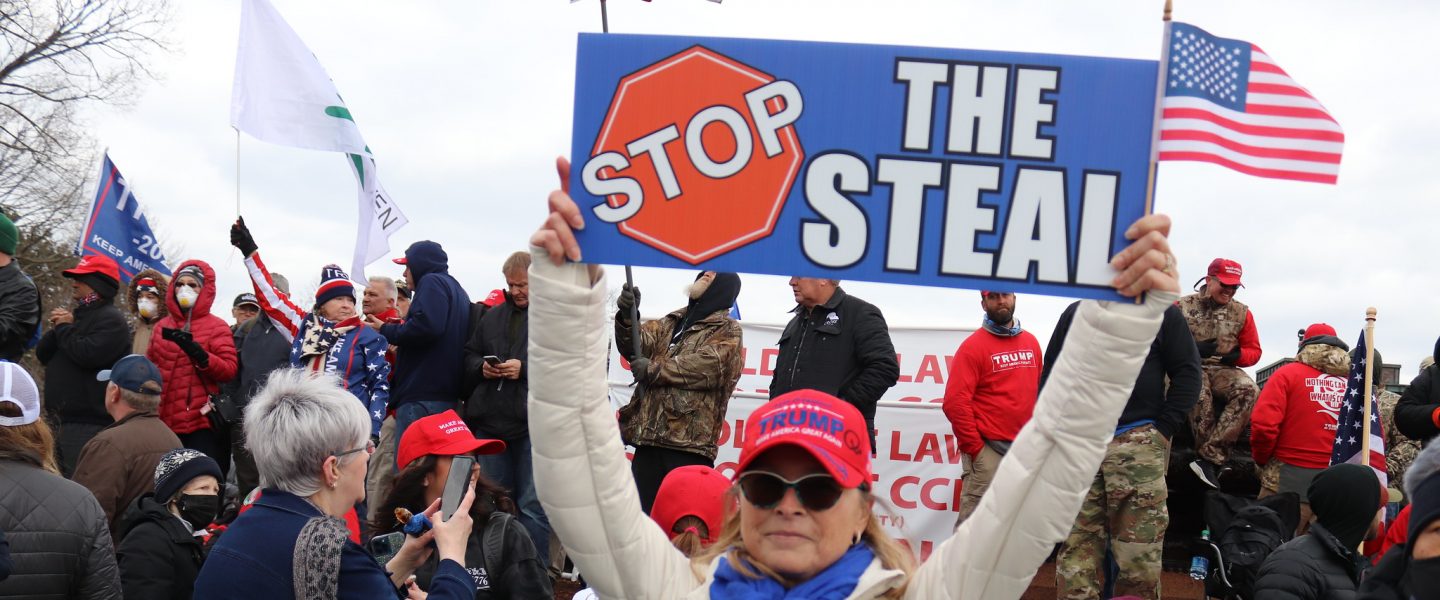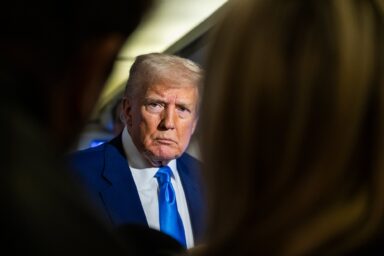Dems Slam YouTube’s ‘Irresponsible’ Decision to Allow Election Misinformation
Democratic lawmakers are strongly criticizing YouTube for reversing its policy on not allowing election-denying content on its platform.
|
Listen To This Story
|
House Democrats on Thursday sharply criticized YouTube for reversing its election misinformation policy, which will once again allow users to publish false content related to the 2020 election.
Earlier this month, the company announced that it would no longer remove “content that advances false claims that widespread fraud, errors, or glitches occurred in the 2020 and other past US Presidential elections.”
In a letter to Neal Mohan, the CEO of YouTube, and Sundar Pichai, the CEO of its parent company Alphabet, the lawmakers left no doubt that they believe this reversal is reckless.
“While you claim that taking such action is ‘core to a functioning democratic society,’ we emphatically disagree,” wrote Rep. Frank Pallone (D-NJ), the ranking member of the Energy and Commerce Committee, and senior committee members Reps. Jan Schakowsky (D-IL), Doris Matsui (D-CA), and Kathy Castor (D-FL). “Not only is this decision extremely irresponsible, but, in fact, it threatens to weaken our democracy, and therefore we strongly urge you to reconsider this harmful policy decision.”
This is not the first time that YouTube has attracted the wrong kind of attention regarding its election denial policies. In 2020, it was the last major social media platform that put in place restrictions on related content that could be uploaded.
It took the company more than a month following the election, long after then-President Donald Trump and his allies had begun spreading the Big Lie, to declare that it would remove videos that falsely claimed that then-President-elect Joe Biden had only won because of software glitches or counting errors.
The lawmakers argue that YouTube’s reversal can have real-life consequences.
“We are firm believers in the First Amendment and respect a social media platform’s desire to foster a fulsome discussion of political ideas and thoughts,” they wrote. “However, false content that questions the legitimacy of a Presidential election has already caused real-world harms to election workers, law enforcement, and elected officials, among others.”
They pointed out that the 2024 election cycle will likely also be rife with misinformation, which makes the policy reversal particularly problematic.
In addition to voicing their concerns, the lawmakers also requested information from YouTube regarding its policy reversal and how the company intends to limit the spread of election-related misinformation going forward.
Specifically, they demand to know how disseminating such information is not a violation of existing YouTube policy “against posting previously removed content or general elections misinformation policies.”
In addition, the lawmakers want the company to let them know how it intends to “fact check, label, provide context around, or reduce the spread” of election misinformation.
Finally, the Democrats ask for a detailed description of the platform’s plans, including new policies and tools, for curbing misinformation during the current election cycle.




